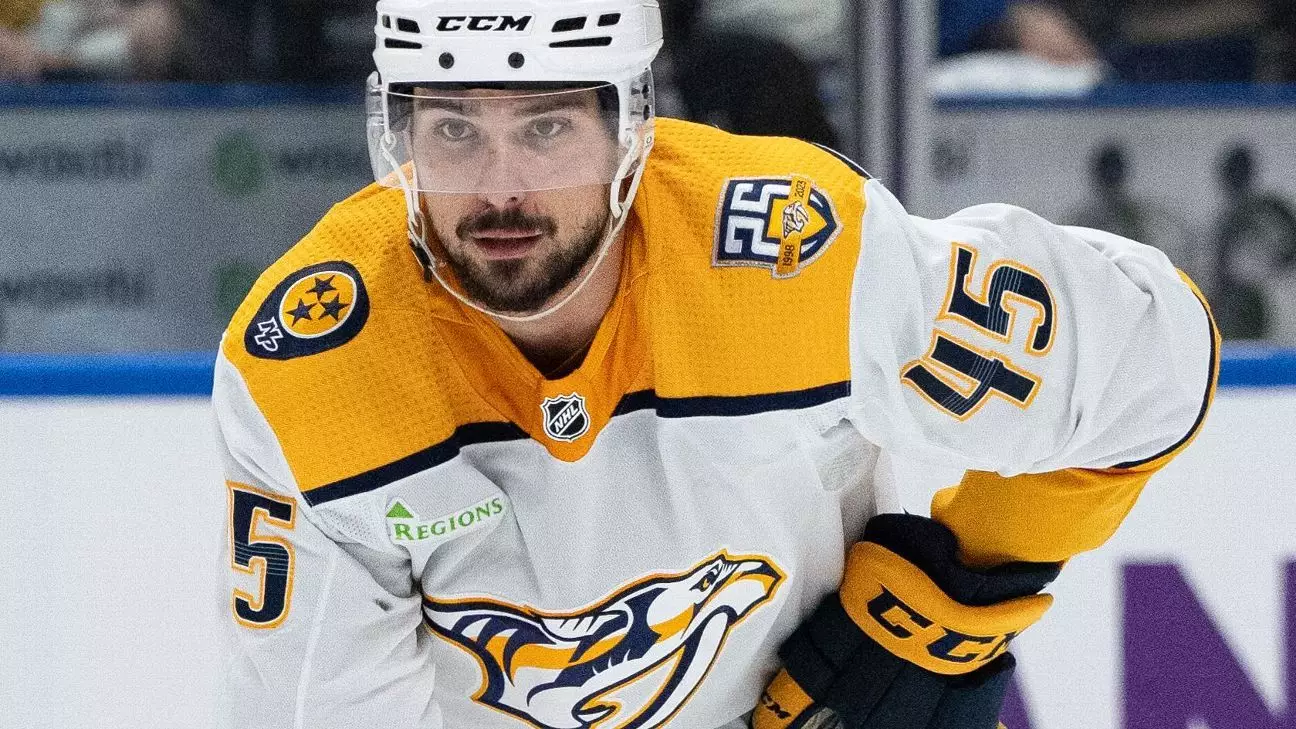In a surprising mid-season maneuver, the Montreal Canadiens have traded defenseman Justin Barron to the Nashville Predators in exchange for Alexandre Carrier. This trade, finalized just before the NHL’s holiday roster freeze, marks a significant shift in both teams’ defensive strategies. Carrier, who struggled with Nashville this season, presents a new opportunity for the Canadiens, while Barron, a promising young talent, offers the Predators a chance to replenish their defensive depth.
Alexandre Carrier, who is 28 years old, has experienced a challenging season with the Predators, amassing only seven points and carrying a minus-14 rating across 28 games. Although he logs substantial ice time, averaging over 20 minutes per game, his performance has not met expectations. Carrier’s recent history indicates that while he has the potential to contribute offensively—having recorded 30 points during the 2021-22 season as a rookie—his deficiencies in plus/minus this season raise concerns about his overall effectiveness. With a significant portion of his time on the ice dedicated to penalty kills, carriers’ role has been primarily defensive, yet his production has not mirrored his workload.
Interestingly, Carrier has recently been sidelined with an upper-body injury, being classified as “week to week” since his last appearance on December 7. This foray into injury complicates his immediate impact on the Canadiens, who may need to exercise patience as he returns to form.
On the flip side, Justin Barron, though younger at 23, has also struggled to cement his place within the Canadiens lineup. With only one goal in 17 games and a minus-4 rating, Barron has found himself facing scrutiny. His average ice time of 14:43 is a noticeable decrease compared to the previous season, suggesting that he has not fully met coach Martin St. Louis’s expectations. St. Louis emphasized the need for consistency in Barron’s game, highlighting a crucial gap: while Barron excels in physicality and blocking shots, his overall engagement on the ice must improve. St. Louis’s comments suggest a player who possesses talent but needs to refine his approach to maximize those skills effectively.
This trade signifies a reshuffling of assets for both the Canadiens and the Predators. For Montreal, acquiring Carrier is an attempt to bolster their blue line during a season that has not gone as planned. The Canadiens are betting on Carrier’s prior experience and potential for improvement to enhance their defensive structure.
Conversely, Nashville’s acquisition of Barron signals a strategic pivot towards integrating young talent into their defensive core. With Barron under contract for two more years at a reasonable cap hit, management likely sees an opportunity to develop him into a more consistent performer.
As both teams navigate these transitional waters in their respective seasons, the effectiveness of this trade will undoubtedly come to light in the forthcoming games. For Carrier, the opportunity to restart in Montreal may serve as a much-needed catalyst for positive change. Meanwhile, Barron’s journey with the Predators will test his resilience and adaptability in an evolving league landscape. Thus, while this trade may seem transactional, the underlying currents of opportunity, expectations, and development timelines render it a pivotal moment for both franchises.

